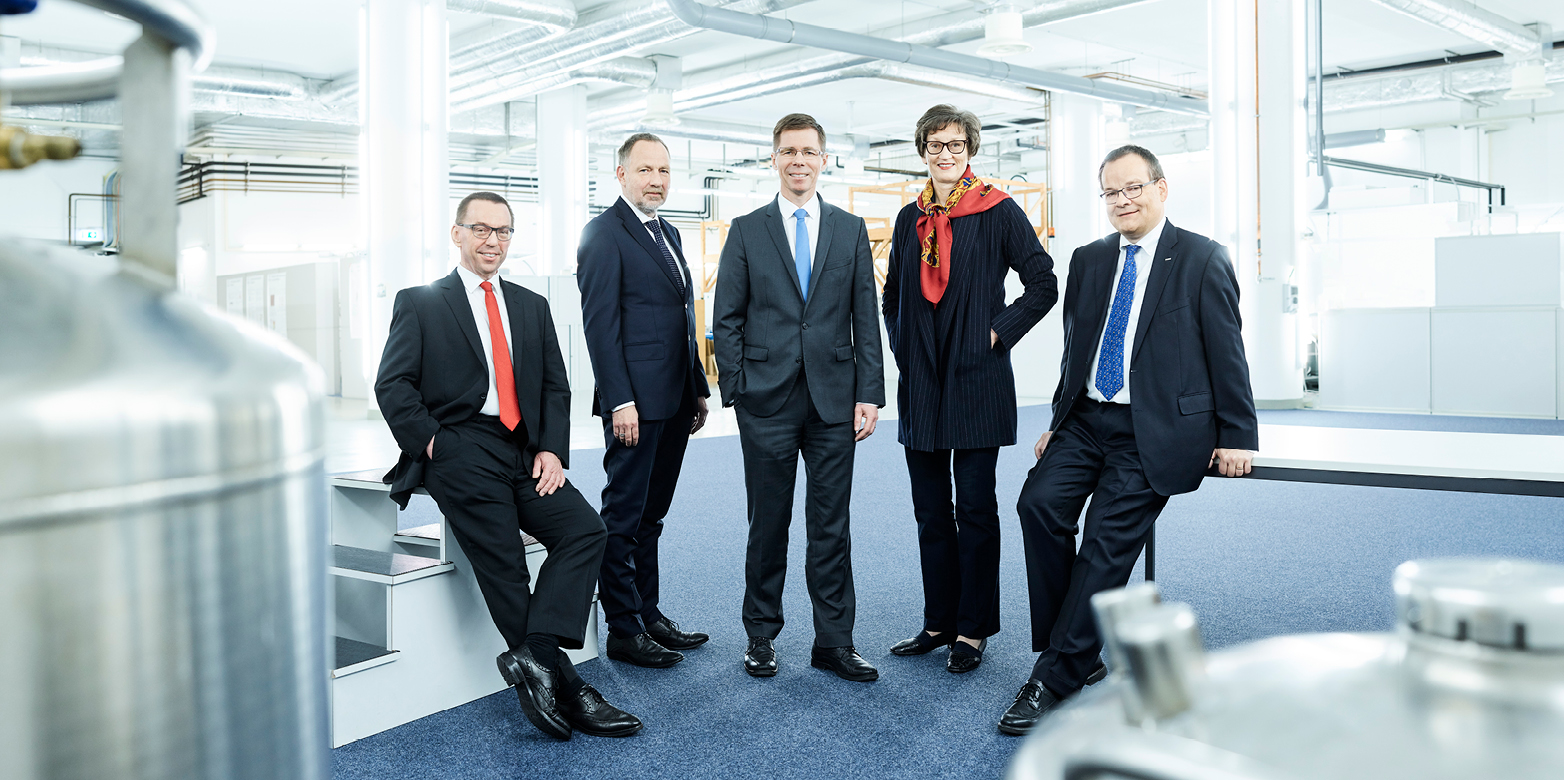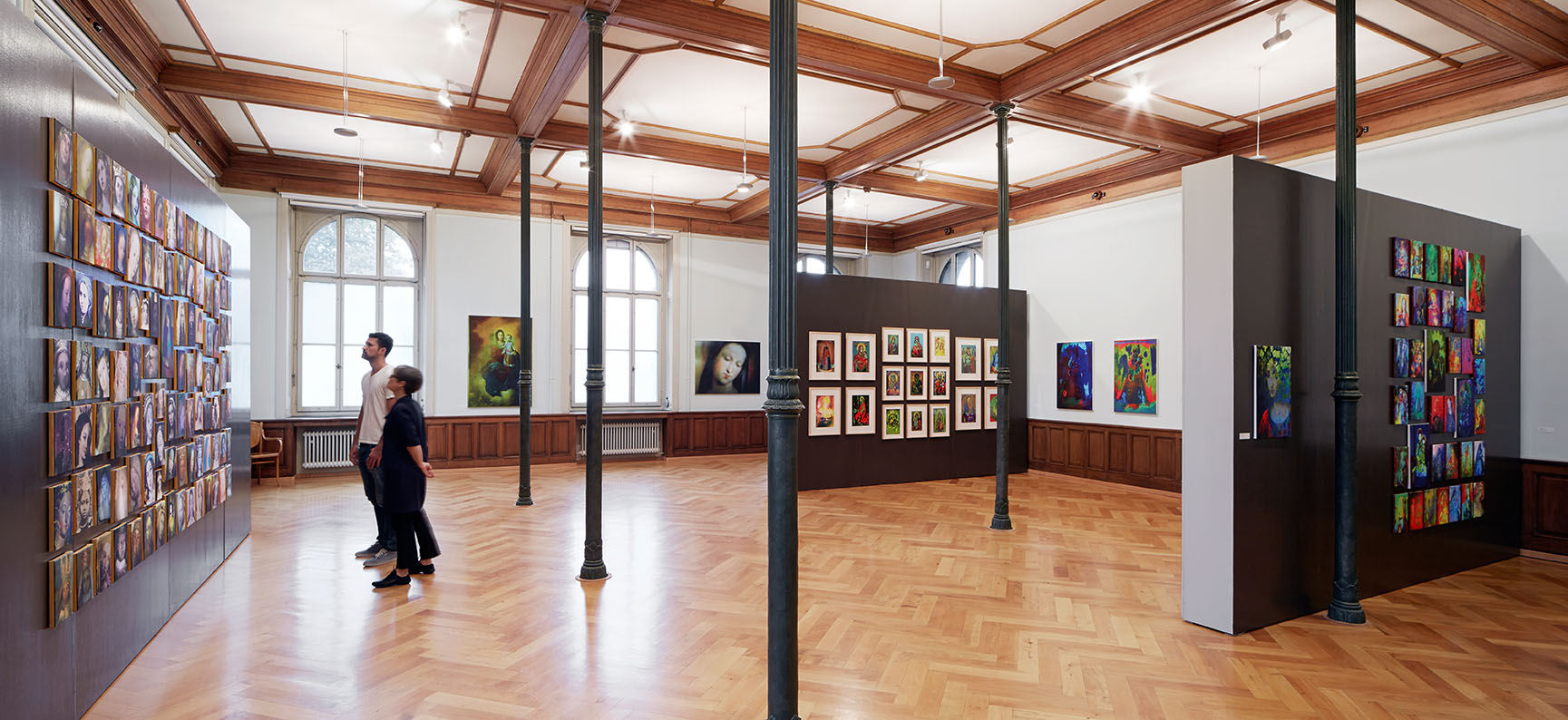The Executive Board reports 2019 / 1
In the first series of meetings chaired by the new President, Joël Mesot, ETH Zurich’s Executive Board made provisions for ten new professorships. It also concluded the project to optimise occupancy of the ETH Main Building and created a more permanent structure for the Critical Thinking Initiative.

The Executive Board is upgrading the status of the Critical Thinking (CTETH) Initiative from a project to a permanent structure. After ETH Professor Gerd Folkers has already done a good job building up the initiative since 2013, a member of the Executive Board will now take charge. This person will lead a permanent CTETH team that will report to the Rector and build a network of contact persons in the academic and administrative departments, as well as the staff units. Support will also come from a ‘sounding board’ consisting of representatives from the departments, university groups and central bodies. Teaching events, project support and a regularly published reader will encourage critical thinking among students and employees, which is a vital element of academic culture.
Ten new professors thanks to the Hanna Böhi Fund
One of President Mesot’s stated goals is to increase the proportion of women at all levels of the university. In this spirit, the Executive Board has given the green light to create a pool of ten more professorships, with most of the finance provided by ETH’s Hanna Böhi Fund.
“I am delighted that the Hanna Böhi Fund has given us the opportunity to set the path towards greater diversity. More talented women make an enormous contribution and bring new scientific perspectives – an investment that is sure to pay off”.Joël Mesot - President of ETH Zurich
The new pool will be activated whenever there is an opportunity on top of the existing recruitment schedule to attract leading researchers as professors. For example: in situations where candidates do not exactly match the advertised academic profile, but their scientific expertise would be an ideal addition to the relevant discipline. In other words, the pool provides earmarked resources that will only be drawn upon if a chance arises to recruit a top female talent for ETH.
Occupancy of the ETH Main Building optimised
Over the years, the occupancy of the university’s Main Building has become fragmented and needs to be optimised. Several teams working for the Vice President for Human Resources and Infrastructure (VPPR) are moving to new premises in Oerlikon: the “Print and Publish” section of the Services department has already moved into the ONA building. The Event team, also part of the Services department, will relocate to the Hönggerberg Campus in 2020. In December of the same year, VPPR Ulrich Weidmann and his staff unit, along with Real Estate Management, Facility Management, IT Services, Services, and Human Resources, will move into the newly leased Octavo building in Oerlikon.
The Department of Mechanical and Process Engineering (MAVT) will also be vacating rooms in the Main Building, including the seminar room G1, which the Rector’s Staff will take over. The building’s iconic dome will be converted into a Visitor Centre where incoming guests can be given an introduction to the university and smaller events can be organised. The Visitor Centre will benefit from its location close to the popular faculty restaurant.
This reshuffle allows us to accommodate the growing demand for space from several staff units and organisational units (ETH transfer, Strategic Development, Office for Faculty Affairs, Legal Office, Finance and Controlling, etc.). We have also found a definite home for the Thomas Mann Archive, which will move from the Hönggerberg Campus into the Main Building close to our artwork collection (Graphische Sammlung) at the end of 2020. This reorganisation is part of our efforts to make all ground floor facilities accessible to the public, a commitment made by all university partners for their city centre premises in Zurich.
New location for the Department of Computer Science
The Department of Computer Science is enjoying dynamic growth and needs a second site. Following the establishment of a new Institute for High-Performance Computing Systems, bringing together D-INFK, D-ITET and CSCS, additional space is being leased in the Andreasturm, within walking distance of Oerlikon railway station. The aim is to set up a new computer science hub. There is still no free space at the Department of Computer Science’s premises in the city centre and with demand continuing to grow, the department is working with the VPPR to find potential solutions.
Storing research data
The research data compiled by our scientists are crucial for the university. It is increasingly becoming common practice for commercial providers to offer researchers to store not just the data relating to a specific publication, but also their research data. The Executive Board strongly recommends that all professors and senior scientists do not accept any commercial offers from publishers for hosting research data until internal investigations have been completed and ETH issues guidelines and recommendations for correct management of research data.
“I kindly ask all ETH researchers to refrain from forwarding research data to commercial providers for the moment. If you have any doubts or questions, you should therefore consult ETH’s IT Services.”Detlef Günther, Vice President for Research and Corporate Relations
ETH has developed its own solutions for saving data from ongoing research and for their long-term storage. The advantage is that authorisation to access the data and how the data are managed can be clearly regulated.
Postdocs: existing salary model to be retained
Following the fundamental switch to full-time employment for postdocs, a multi-stage salary model was discussed at the request of individual departments. The required flexibility is necessary in order to be able to respond to the highly competitive situation in international research projects. The current rates offered by the Swiss National Science Foundation (SNSF) are also lower than ETH Zurich. The internal discussion has now produced a clear majority of departments and university groups voting against the proposed new model. The Executive Board has therefore decided to retain the current salary model for postdocs.
Collection of scientific instruments and teaching materials
The university is fortunate enough to have been given a collection of scientific instruments and teaching materials. The ETH Library has been commissioned to index and store the items to the usual professional standard, and make them available for exhibitions or other outreach activities.
“As a 164-year-old institution, ETH has a fascinating collection of scientific devices, instruments and teaching materials. By bringing them together in the ETH Library, we now want to encourage their active use.”Ulrich Weidmann, Vice President for Human Resources and Infrastructure
The Executive Board has approved one-off funding of almost 600,000 Swiss francs for setting up the collection up to 2022, as well as the appointment of a director for the collection. The departments and their emeritus professors will be closely involved in setting up and developing the collection. The items will either remain in the departments or can be housed in the mid-term in the storage facility in Buchs. The facility will be fitted out by the University of Zurich, and ETH will rent space there.
Pandharipande heads up the Institute for Theoretical Studies
Rahul Pandharipande will be the new director of the Institute for Theoretical Studies (ITS). Pandharipande, a specialist in algebraic geometry and related fields such as physics, has been teaching and researching in the Department of Mathematics since 2011. He takes over from the institute’s current director, Giovanni Felder. ITS is an interdisciplinary institute that been researching at the interfaces between mathematics, theoretical physics and theoretical computer science since 2013. Funding for the institute came from donations from the Walter Haefner Foundation and from Dr Max Rössler.
Composition of the ICT Commission
The repositioned ICT Commission advises the Executive Board on strategic ICT decisions and the associated allocation of resources. The Board has determined the composition of the commission: the chairman is the Vice President for Human Resources and Infrastructure (VPPR), Ulrich Weidmann. Torsten Hoefler (D-INFK), Siddharta Mishra (D-MATH), Roger Wattenhofer (D-ITET) and Christopher Hierold (D-MAVT) were appointed as department representatives. Rui Brandao (Director of IT Services) and Markus Knaus (Head of Controlling) have also been appointed to the commission as representatives of the central administrative bodies. The Board has also selected various external members: Karl Landert (entrepreneur and former CIO of Credit Suisse), Andreas Nemeth (Head of IT at Zurich City Council) and Reto Schnellmann (Head of ZHAW Finance & Services). They have been elected as members up to the end of 2020.
New members appointed to the Graphische Sammlung’s board of trustees
There have been a number of changes in the Board of Trustees of ETH Zurich's Graphische Sammlung. The Executive Board has appointed some new members to the committee: Michael Hampe (D-GESS representative), Markus Joachim (ETH Library), Anita Haldemann (Kunstmuseum Basel), Carole Haensler Huguet (Museo civico Villa dei Cedri, Bellinzona), Lionel Bowier (Director Musée d’art moderne et contemporain (MAMCO), Geneva) and Dr Bärbel Küster (Professor for Modern and Contemporary Art, University of Zurich). Members selected for a second term include Philip Ursprung from the Department of Architecture and Roger Fayet, Director of the Swiss Institute for Art Research. The new members replace Lisa Ott, who is on maternity leave, as well as Harald Fischer-Tiné, Christian Müller, Manuela Kahn-Rossi and Dominique Radrizzani, all of whom have already reached their maximum term of office of eight years. Due to work commitments, Tristan Weddigen has decided to step down from the scientific advisory committee of ETH Zurich’s Graphische Sammlung.

Comments
No comments yet